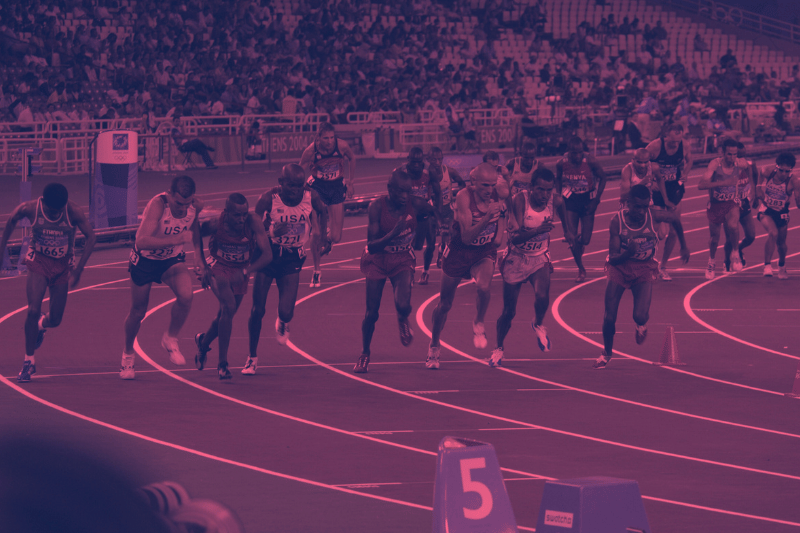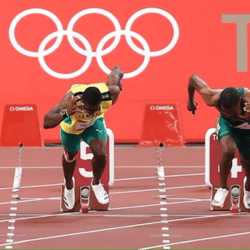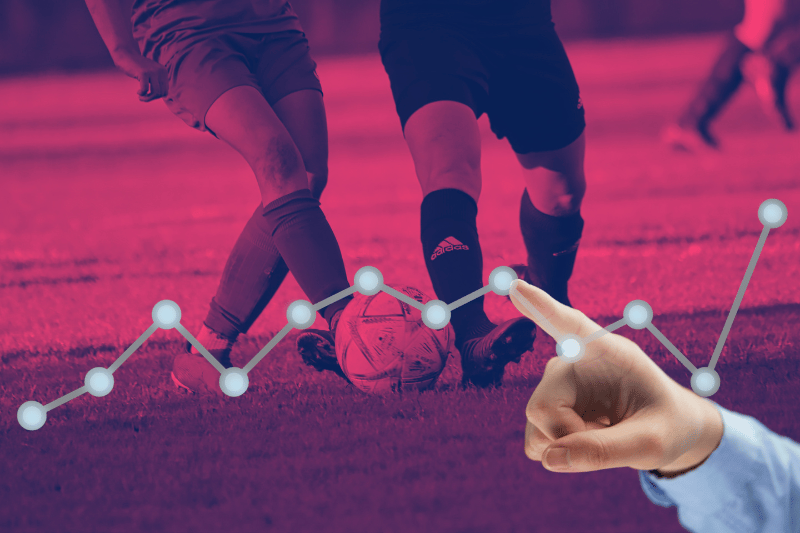
The Olympic Games represent the pinnacle of athletic performance, attracting global attention every four years as competitors from all over the world compete at the greatest level in Sports. Behind the scenes, an invisible power pulls the games into the digital age: Olympic Sports Data. Let’s jump in!
Why does data hold significance in the realm of Olympic sports?
Data is considered valuable in Olympic sports for a number of reasons. Let’s look at a few examples, if a sports organization wants to reach out to potential attendees, it would try to leverage its existing audience and ticketing data to draw insights and fine-tune its offerings further to reach more people. The key idea here is to understand which groups can be targeted and in what way. Demographics of the audience would play a huge role in crafting strategies to boost ticket sales.
 Further Olympic data plays a far more significant important for team managers and coaches, who rely extensively on player stats to measure the performance of athletes. Take into account sports like football, ice hockey, and basketball with so many talented players around the world to recruit and keep track of, increasing the reliance on detailed data analysis. Managers need to monitor many metrics like the number of goals or baskets made by individual players from season to season to make informed decisions and sign talented players on their team. Data is also instrumental in evaluating the competitors as well, which can come in handy at any time for athletes as they compete on the grand stage.
Further Olympic data plays a far more significant important for team managers and coaches, who rely extensively on player stats to measure the performance of athletes. Take into account sports like football, ice hockey, and basketball with so many talented players around the world to recruit and keep track of, increasing the reliance on detailed data analysis. Managers need to monitor many metrics like the number of goals or baskets made by individual players from season to season to make informed decisions and sign talented players on their team. Data is also instrumental in evaluating the competitors as well, which can come in handy at any time for athletes as they compete on the grand stage.
The growing importance of data in Olympic sports cannot be denied, and as sports data providers attempt to meet the increasing demand of a data-centric audience, they walk through many challenges and opportunities while harnessing vast amounts of data generated during this monumental event.
Challenges in Olympic Sports Data Management:
Increasing Data Volume:
The sheer volume of data during the Olympics can overwhelm data management systems. Over the two to three weeks of the event, multiple events are taking place simultaneously and thus more and more data points are created per event. Sports data providers must deal with the challenge of handling and processing huge datasets in real time. All the while take care of data accuracy and consistency as well. The simplest of discrepancies would affect the integrity of the provider. Ensure accuracy and consistency of data, across multiple channels of distribution, is a formidable task one that demands attention to detail and sophisticated validation mechanisms
Creating standardizing data formats:
Another one of the big challenges sports data providers have to deal with is that Olympic sports data is collected from various sources like sensors, wearables, and manual record keeping. The big task now to is collect data from such disparate systems and aggregate them in standardizing data formats to analyze data comprehensively. Creating and maintaining such a format in the dynamic sports data landscape has proved to be a persistent challenge.
Data Privacy and Security:
Data privacy and processing are a major problem. They span various industries and are not limited to sports and leisure. For example, several US sports teams are subject to the CCPA or the California Consumer Privacy Act. The CCPA, like the General Data Protection Regulation (GDPR) for EU data, requires information protection. In this situation, it naturally relates to data from Californian sports aficionados. Thus Data providers need to handle Athletes' performance data, health information, and other sensitive details with the utmost care to comply with privacy regulations and protect against potential cyber threats.
Let's dive into the Opportunities for Sports Data Providers:
Elevated Spectator Engagement:
 The availability of real-time, comprehensive Olympic sports data presents an opportunity to enhance spectator engagement. With the development of interactive dashboards, augmented reality experiences, and customized content, Sports Providers can offer a more immersive and captivating viewing experience for global audiences. It could include a medal table, with specific country-wise filters for personalized content offerings.
The availability of real-time, comprehensive Olympic sports data presents an opportunity to enhance spectator engagement. With the development of interactive dashboards, augmented reality experiences, and customized content, Sports Providers can offer a more immersive and captivating viewing experience for global audiences. It could include a medal table, with specific country-wise filters for personalized content offerings.
Data-driven Insights for Athletes and Coaches:
Athletes and coaches can derive invaluable insights from the data sets before and during the Olympic Games. Sports data Providers can empower athletes with better strategies for injury prevention, personalized training strategies, and Performance analytics to get a competitive edge on the grand stage.
Data-driven Services
Olympic sports data analytics opens the gates for more monetization opportunities. Sports data providers can curate advanced analytics packages, fantasy sports platform offerings, and better betting integrations, offering, sports enthusiasts deeper insights and engagement.
Technological Advancements and more Global Collaborations
Sports Data Providers strive to stay relevant in the face of continuous technological innovation. Many of them have even set themselves apart with their skillful embrace of emerging technologies like artificial intelligence, machine learning, and block chain. Such tech has streamlined data processing, improved accuracy, and provided innovative solutions to persistent challenges. Next, as the Olympic Games take place on the global stage, Sports Data Providers have a chance to build on their global presence and deliver comprehensive and diverse sports experiences to audiences worldwide.
Olympic sports data, which sits at the intersection of history and technology, provides both obstacles and possibilities for sports providers. Navigating the complexities of data management, accuracy, and security requires collaborative efforts to deliver effective solutions. However, by embracing data's revolutionary power, the Olympic Games may open up new possibilities for spectator engagement, athlete development, commercialization, technical innovation, and international collaboration. Looking ahead, the road to unlocking the full potential of sports data promises to be a fascinating one that will shape the Olympic Games scene for future generations and with Data Sports Groups’ ever-evolving approach get the most out of Sports data feed during the Paris 2024 games.










